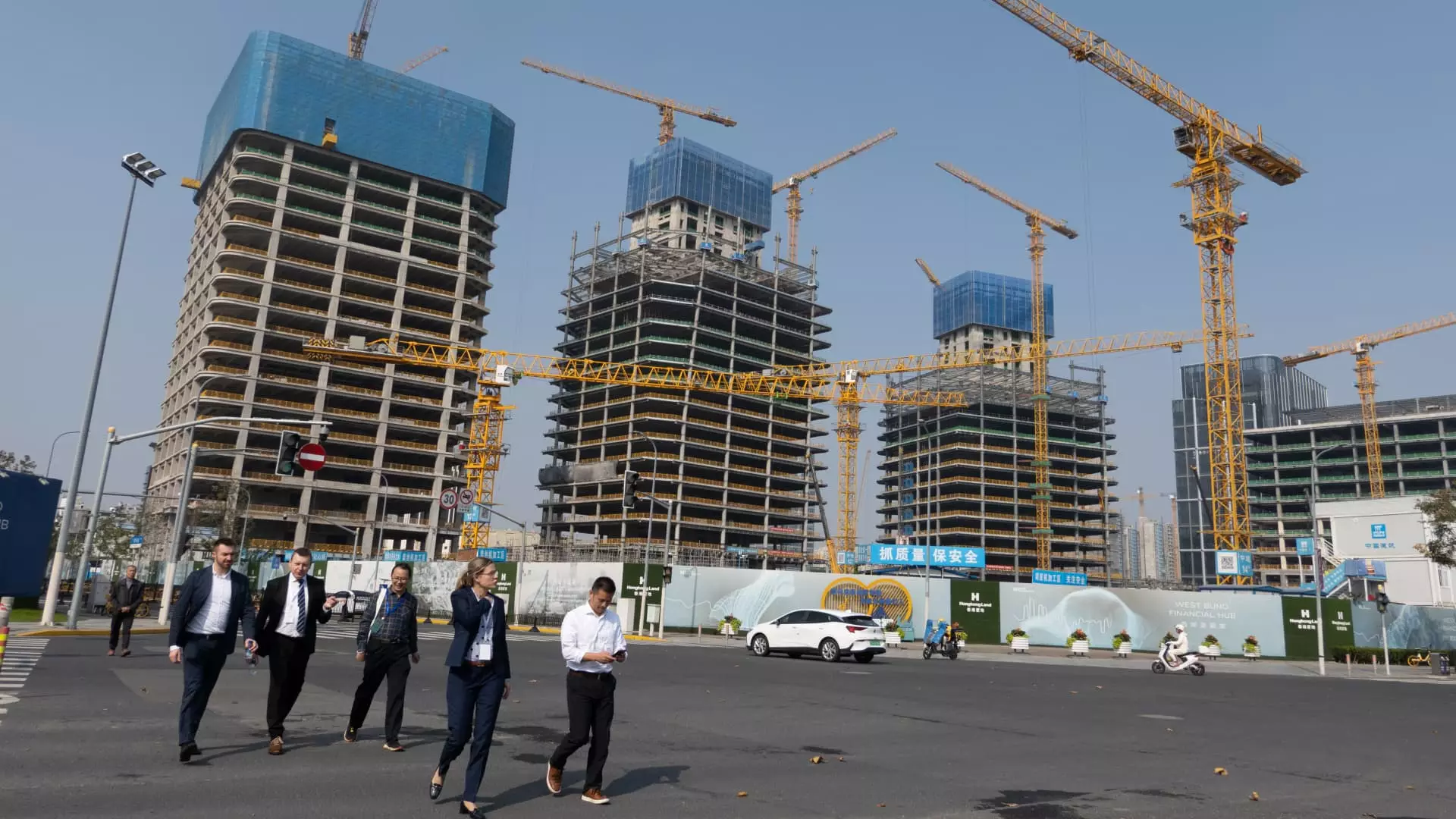As China approaches the conclusion of its parliamentary sessions, anticipation mounts regarding the expected unveiling of further economic stimulus measures. These measures are considered essential as the nation grapples with economic challenges exacerbated by the ongoing repercussions of the COVID-19 pandemic and a persistent downturn in the real estate sector. With President Xi Jinping emphasizing the need for both fiscal and monetary support, the discussions within the National People’s Congress are poised to influence the trajectory of China’s economic recovery.
Since late September, the Chinese government has escalated its efforts to generate economic momentum through various stimulus announcements. This surge in government action has undoubtedly ignited a rally in the stock market, reflecting investor optimism amidst economic uncertainty. However, the potential for expanded government debt and increased spending necessitates parliamentary approval, a fundamental aspect of China’s governance that often dictates the pace and scale of economic interventions.
The People’s Bank of China’s previous interest rate cuts represent just one piece of the puzzle in a larger strategy to revitalize an economy facing significant headwinds. The National People’s Congress offers a crucial platform for determining whether an increase in fiscal support will materialize. Analysts predict that the parliament may approve a raise in the deficit limit, which, if executed, would mirror last year’s increase from 3% to 3.8%. Such adjustments indicate the institution’s willingness to adopt policies that could stimulate growth despite existing uncertainties.
A significant focal point emerging from the discussions within the parliament centers around the local government debt issue. With an alarming volume of hidden debt estimated between 50 trillion to 60 trillion yuan (approximately $7 trillion to $8.4 trillion), the financial stability of local governments is at a critical juncture. Recent plans reviewed by officials to enhance borrowing limits signify an acknowledgment of this crisis, allowing local authorities to better manage their existing obligations.
The consideration to increase the debt issuance cap by about 10 trillion yuan is not merely a fiscal maneuver; it carries implications for saving local governments approximately 300 billion yuan in annual interest payments. Such savings are vital as local authorities have been financially strained by losses in revenue linked to the real estate downturn and additional expenditures related to COVID-19 management. Hence, any forthcoming fiscal policy needs to comprehensively address these local debt scenarios.
Despite the optimistic outlook presented by some analysts, there remains a prudent apprehension about the government’s approach to consumer support. Beijing’s historical reputation for cautious economic interventions suggests that significant direct support to consumers might not be forthcoming. Such conservatism may hinder the speed and efficacy of a recovery, especially in a scenario where consumer sentiment plays a pivotal role in economic revival.
Moreover, external factors, including trade tensions and global market fluctuations, also cast shadows over China’s economic plans. With the U.S. maintaining a fraught trade relationship under the leadership of President Trump, Beijing must navigate complex geopolitical waters while fostering domestic economic growth.
As China stands on the brink of potentially transformative fiscal policy decisions, the next steps taken by the National People’s Congress will be critical in determining the future course of the economy. The balance between stimulating growth and managing debt sustainably will dictate whether these anticipated stimulus measures can lead to a genuine recovery. Observers are urged to keep a close watch on the outcomes of these discussions, as they will undoubtedly shape China’s economic landscape for years to come.

